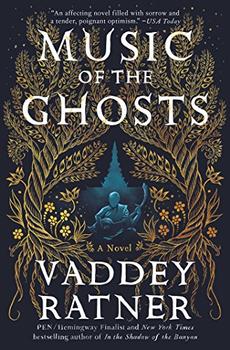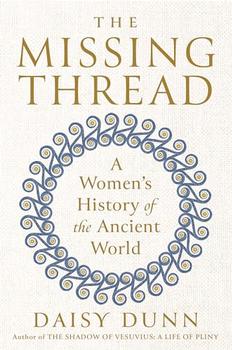Book Club Discussion Questions
In a book club? Subscribe to our Book Club Newsletter!
Please be aware that this discussion guide will contain spoilers!
Introduction
As Music of the Ghosts opens, Teera's beloved aunt Amara, the only link to her traumatic childhood escape from the atrocities of the Khmer Rouge genocide, has just passed away. Now, she must return to her homeland to rediscover a family legacy.
At age thirty-seven, Teera is in many ways a stranger to this new Cambodia and the stories it holds. In addition to fulfilling her promise to return her aunt's ashes to Phnom Penh, she has been called by a letter from a half-blind man, the Old Musician, who is searching for a peace he can't find in the temple compound where he earns his keep by playing for ceremonies and funerals. Still, the Old Musician and the young woman are bound by history, and the story of the three instruments that are her birthright.
In this lyrical and poignant novel (the follow-up to the author's bestselling In the Shadow of the Banyan), the heartbreak of the Old Musician's past intertwines with Teera's own voyage of self-discovery, as questions of past trauma, present justice, and the legacy of love change both of them forever.
Topics & Questions for Discussion
- Teera feels sure that Amara has had to live with a "divided self" since fleeing her homeland and coming to live in Minnesota. Do you think Teera's identity is also divided, and if so, in what ways? Do you think she feels this divide before returning to Cambodia?
- When she first visits Wat Nagara, Teera panics, feeling sorrowful and isolated. "She wanted to be alone with the ghosts, to seek communion with her loved ones. Instead she came face to face with her aloneness, saw it reflected wholly, indelibly, in the engraved invocation." Of the two types of solitude mentioned here, which do you think is more painful for her and why?
- Among the many parallels between the musicians' lives, both Sokhon and Tun abandon their young daughters on the eve of war. Do you think each of the fathers did the right thing? Is this abandonment more cruel or more kind?
- Compare the ways in which the novel's female characters (Channara, Amara, Teera, Yaya) deal with the trauma of the Cambodian genocide. What are the "breaking points" for their grief? Would you characterize some of the women as stronger than others?
- Do you think Mr. Chum becomes a father figure for Teera during her visit to Cambodia?
- Teera and Narunn each lost their families during Pol Pot's regime. Do you see them recreating other, non-traditional families for themselves in the war's aftermath? What "families" did you find throughout the novel?
- "The hues of one love simmer in another." There are many layered relationships in the novel, in which certain figures become stand-ins or foils for another, such as Tun confusing Teera with her mother. Which relationships of this type did you see throughout the story?
- Several times in the novel, Teera's first encounters are infused with questions from the past, as in her descriptions of meeting the Old Musician and Dr. Narunn. How does the author's writing convey this interplay of perception, hope, and memory? What does it reveal about the characters?
- Much of the novel explores how we adapt to and survive in the face of inhumanity. Still, it doesn't sugarcoat the lasting effects of fear, desperation, and ruthlessness on its characters' psyches. Would you say that Music of the Ghosts has an optimistic message?
- The abbot says, "Foreigners have often said ours is a 'culture of impunity.' An English phrase, as you know... . What does it really mean?" Judging by Ratner's description in the book, would you describe the Cambodian culture as such?
- One of Music of the Ghosts' most resonant themes is that of justice: what it entails, and what its limits are. What is your definition of justice? Is there a difference between justice and retribution, as the Old Musician suggests?
- Consider the modern children in the book: the young monks, Lah, and Makara, the young addict-turned-novice. How do you feel they are affected by the legacy of the war and genocide?
- The Old Musician feels responsible for Sokhon's fate, and a single question has tormented him for decades. Do you think he was right to do what he did in Slak Daek? What would you have done in the same situation?
- Cambodians of a certain age often ask each other, "Where were you during ar-Pot?" (the Cambodian genocide, 1975-1979). If you were alive then, where were you, and do you remember hearing about events in that country during that time or later?
- Teera sometimes feels that when names like Pol Pot's live on in history books and in our collective awareness, that it's a "triumph of evil." Do you think this is the case?
- The Old Musician understands karma to mean that he'll pay for his crimes, but if that's true "then a temple is the last place he'd expect to be offered a home…What wrinkles or variances in the laws of karma have delivered him to this enclave of mercy, when his actions should've warranted him a punished existence?" What do you think about karma? Do things eventually right themselves or is this an illusion?
- Teera believes there's an inviolable tie to one's homeland. Do you agree? Why do think the old couple on the plane are happy to return to Cambodia when it's been the place of such tragedy?
- The old pharmacist who encouraged Naruun to study medicine told him that ignorance "is its own kind of hell." What do you think he meant? Do you agree?
- In meeting Yaya, Teera wonders how the woman could have lived through the deaths of all thirteen of her children during the Khmer Rouge period. She thinks, "Perhaps the question isn't how anyone can live like this, bearing a lifetime of cruelty and deprivation, but what makes them want to live in a world indifferent to their struggle?" How would you answer this question?
- One of Yaya's family comments "[W]e don't know our own history…Oh, we know, but we'd rather not! We choose to forget." Do you think this attitude is helpful or hurtful for the Cambodians? Is the same true of other war-torn nations?
This discussion guide includes all the opening topics from BookBrowse's 2018 online discussion of Music of The Ghosts. It combines topics provided by the publisher (lightly edited for use in the discussion forum) and other topics suggested by BookBrowse.
Unless otherwise stated, this discussion guide is reprinted with the permission of Touchstone.
Any page references refer to a USA edition of the book, usually the trade paperback version, and may vary in other editions.






